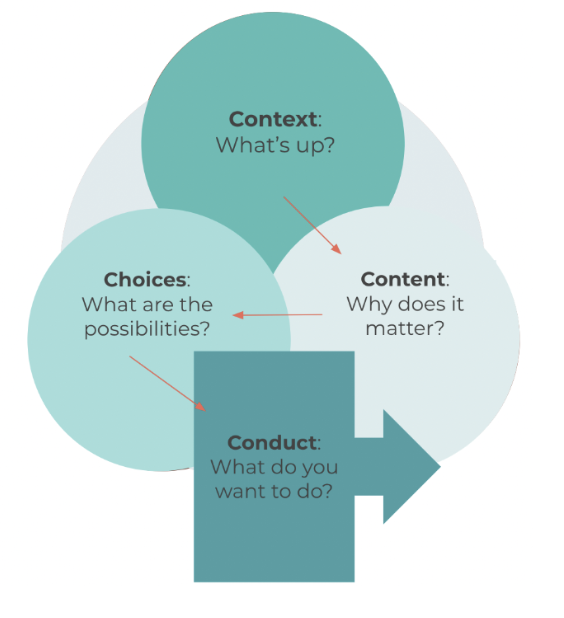Using Coaching Skills to Coach Yourself
By Katie Knowlton
Ever find yourself running in circles around a decision you need to make or a situation you need to address and wonder what to do or how to make progress?
As executive coaches our job is to help our clients unlock their potential and make progress on their goals. By asking open-ended and informed questions, we help clients make sense of their aspirations and fears, clarify their intentions, build their own solutions, and take action.
But sometimes we don’t have the resources or time to engage a coach, even if we recognize that having one could be useful to us. And in those cases, why not try coaching yourself? The other week I needed to work through a particularly thorny issue I was facing and I asked myself: How would I approach this conversation as a coach to myself? It seems like it might feel forced or difficult to do, but stick with me—it can be a helpful process and you can do it too!
Let’s begin with how to coach. At GLP, we use “The Four C’s” as a coaching framework (adapted from the Columbia Coaching Certification Program) to help structure conversations, and that’s where I began in this conversation with myself:
Using a structured framework may feel contrived, but the act of deliberately moving through it may yield better results than you think—it certainly did for me! By forcing myself to articulate the “problem” as I asked myself about the context, I realized there was actually more to it than I initially thought. That then helped me to hone in on what really mattered to me here.
If you find yourself with a particular goal or situation you need help addressing but don’t have the time or resources to engage a coach, consider this approach. I offer below a series of coaching questions to ask yourself that can help you articulate your goal or issue, define why and what is important to you there, what the possibilities are for how to make progress on the goal or issue, and then finally a few (or just one!) key steps you can take to move forward.
Context:
What’s up? Set the stage and describe the problem you are facing or goal you are hoping to achieve.
What else might be at play here? In your mind, how accurately have you described the problem or goal?
Who are the parties involved? Tell me more.
What is the timeline? When is this happening?
Content:
Why does this matter to you?
What excites you in this?
What worries you?
What is at stake for you?
What assumptions might you be making?
What else do you need to learn to approach this situation as informed as possible?
Choices:
What are your options? Lay them out for me.
What strengths, knowledge, skills, or talents of yours can you include as you think about this?
Where have you limited yourself? What do you need to revisit?
Conduct:
What action do you want to take?
What is the first step you can take to make progress?
What do you need to hold yourself accountable?
Depending on how you like to think and process information, there are a couple of ways to approach how you learn from and make sense of your responses to the questions (coaching yourself):
Record yourself with voice notes – by going back and listening to your answers you may discover new questions that would help you move yourself forward that you didn’t anticipate when you were first responding to the series of questions.
Journal it – I always work better when putting pen to paper, so working my way through a series of questions by writing my answers helps me to better articulate my thoughts and also allows me to come back and reflect on them later.
By the end of the exercise, you will likely understand your situation better and may even have a next step to take towards resolving or addressing the topic at hand. Of course what you miss by doing this without a partner is someone to reflect back what they hear from you, probe on particular areas, ask a helpful next question, notice your feelings or reactions, or surface perspectives you may not have considered. But the act of working your way through a particular issue or goal in a structured manner can help you see things more clearly, make decisions that feel better and more informed, or even help you to realize you may in fact need someone to partner with. Starting here helped me make progress in a more deliberate way, and I hope this approach is helpful to you too!

